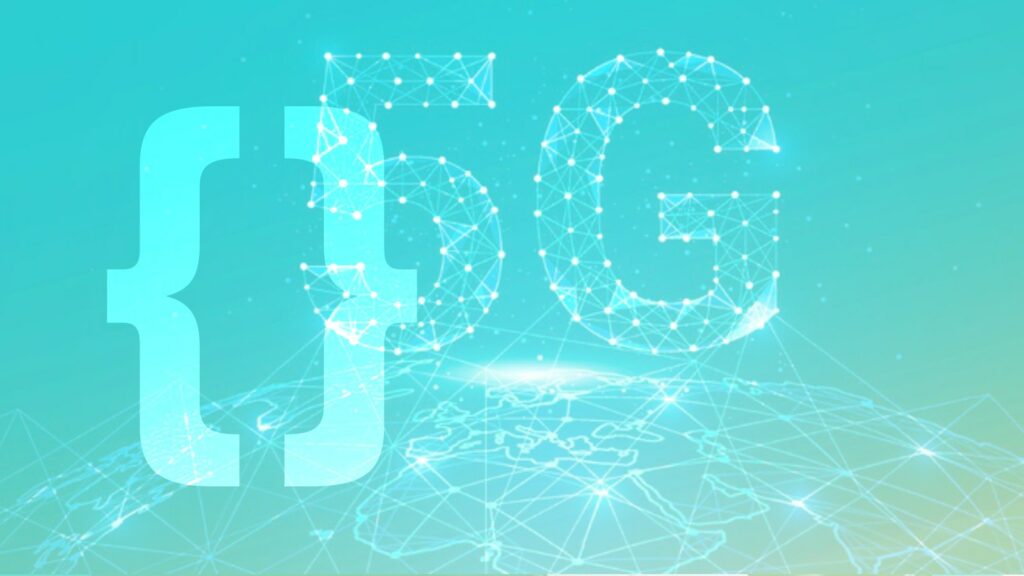The deployment of 5G has generated a revolution in multiple sectors, and cybersecurity is no exception. The advent of this new generation of mobile networks has brought with it a number of significant advantages that strengthen digital protection and open up new opportunities in the field of cyber security. In this article, we will explore the benefits of 5G and how this technology propels digital protection into a new era of cutting-edge technology, delivering improvements in terms of speed, latency and responsiveness, which are critical to address the growing threats in the digital world.
Advantages of 5G, impact on cybersecurity and key benefits for data protection
The 5G revolution has had a significant impact on the field of cybersecurity and it is crucial to understand the key drivers of this transformation and the key benefits it offers for data protection. Firstly, 5G is characterised by enhanced speed and capacity. With download and upload speeds much faster than previous generations, response times in data transmission are significantly reduced, enabling faster detection and response to potential cyber threats. This improvement in speed and capacity also allows for more efficient processing of data in real time, which is essential for the detection and processing of data. attack prevention.
Lower latency, better security against cyber attacks
Within this revolution, another advantage of 5G is the low latency it provides. Latency refers to the time it takes for a data packet to travel from the user's device to the desired destination. With 5G, extremely low latency is expected, meaning virtually instantaneous communication between connected devices. This is especially relevant for cybersecurity, as it enables immediate response to suspicious events and attacks in real time. The low latency 5G is essential for critical applications, such as security in industrial control systems, where the slightest delay can make the difference between preventing a threat and suffering a security breach.
Finally, one of the advantages of 5G for data protection is its increased connectivity. 5G technology enables a higher density of simultaneously connected devices, which is critical in an increasingly interconnected world. This increased capacity facilitates the implementation of advanced security solutions, such as the Internet of Things (IoT)where smart devices communicate with each other and generate large volumes of data.
With 5G, infrastructure can more efficiently handle this constant flow of data, ensuring the integrity and confidentiality of transmitted information. In addition, the increased capacity also enables the deployment of security systems based on artificial intelligence and machine learning, which can analyse large data sets and detect patterns and anomalies more effectively.
Disadvantages of 5G technology
- Expensive infrastructure5G deployment requires complex and costly infrastructure, as new antennas and base stations are needed to cover larger areas. This can create economic challenges for companies and service providers.
- Limited coverageAlthough 5G deployment is underway in many places, full coverage is still limited, especially in rural and remote areas. This means that not all users will be able to access the benefits and advantages of 5G in the short term.
- Wave interferenceThe high frequency used in 5G can be affected by physical obstacles, such as buildings and trees, which can result in signal degradation. This can affect connection quality and stability in dense urban environments.
What does the 5G cybersecurity law look like?
The 5G Cybersecurity Act is a regulatory framework, established by Royal Decree-Lawdesigned to ensure the security of networks and services that offer the benefits of 5G. These are the main keys to this law:
- Risk assessmentThe law establishes the obligation to conduct a comprehensive assessment of the risks associated with 5G networks. This involves identifying and assessing potential threats and vulnerabilities, as well as the necessary measures to mitigate the identified risks.
- Control of suppliersThe law establishes strict requirements for the selection and monitoring of 5G equipment and service providers. This is to ensure that suppliers comply with established security standards and do not pose risks to critical infrastructure and national security.
- Security requirementsThe law establishes specific security standards and requirements that 5G networks and services must comply with. This includes the establishment of technical and organisational security measures, the protection of personal data and the implementation of security incident detection and response mechanisms.
- Cooperation and coordinationThe law promotes cooperation and coordination between different actors, such as service providers, network operators and competent authorities. This is done in order to share relevant information on threats and vulnerabilities, as well as to collaborate in responding to security incidents.
- Sanctions and enforcementThe law provides for sanctions and enforcement measures for those who do not comply with the established security requirements. This can include fines, licence suspensions and other administrative and legal measures to ensure compliance with the law and guarantee the protection of 5G networks and services.
Train with IMMUNE
The cyber security sector presents exciting career opportunities in the era of 5G. With the increasing adoption of this technology and the associated security challenges, the demand for cybersecurity experts 5G technology expertise is constantly on the rise. The job market is looking for professionals with skills y specific competencessuch as in-depth knowledge of 5G networks and protocols, the ability to identify and mitigate cyber threats in 5G environments, and the ability to implement advanced security measures.
Programmes such as the Cybersecurity Bootcamp from IMMUNE Tech Institute offer a unique opportunity to acquire these specialised skills and develop as experts in the field of cybersecurity in the context of 5G. By taking advantage of these specialisation possibilities, professionals can open up a promising future in a constantly evolving industry.
If you are looking for technology training fill in the form for more information.
